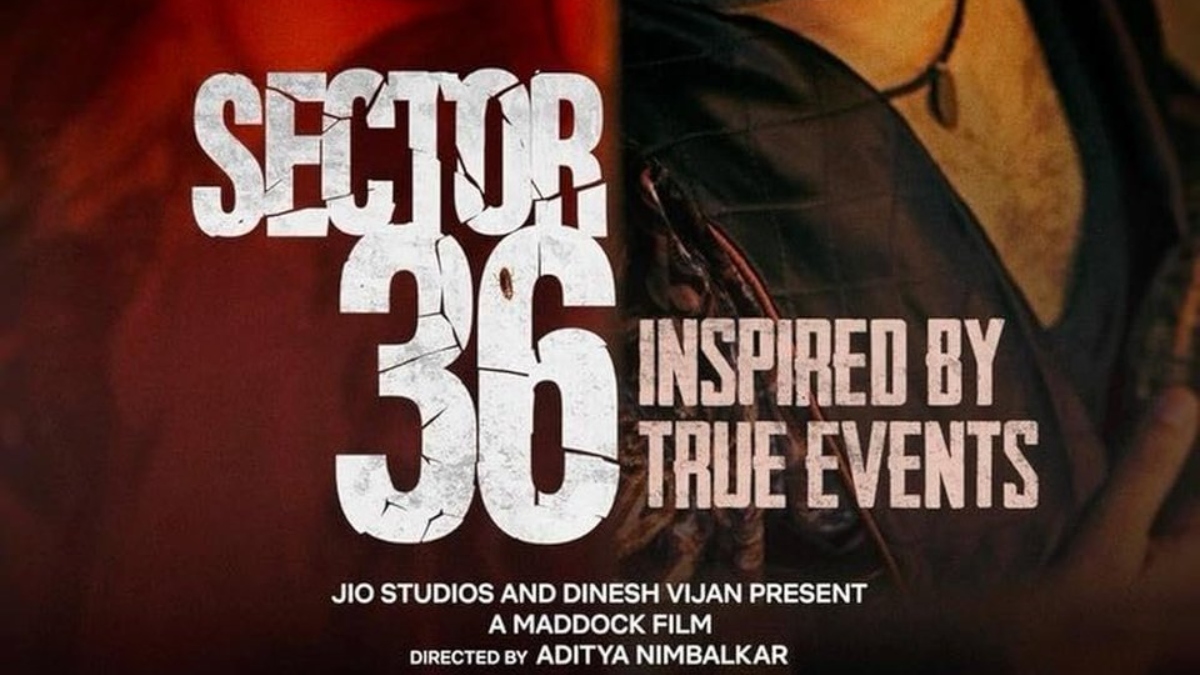A few nights back, during those crucial minutes before bed, I was hoping to find something 'good' to watch. I had to start early the next day and didn't want to spend a lot of time on something interesting and gripping.
Upon navigating the dense bylanes of content, I found myself inevitably gravitating towards true crime thrillers. Of all the available options, I went with Sector 36 on Netflix, starring Vikrant Massey, and remained hooked until 2.30 am.
There is something about true crime dramas that makes me invariably want to watch them all the way till the end. And as it turns out, I'm not the only one! Most Indians, says a study, are drawn towards watching crime, as featured in their top three list of preferred content. Experts blame this "addiction" to crime shows to the "release of feel-good chemicals" in the brain, which allows you to experience "extremely thrilling situations without exposing yourself to harm or danger."
For me, though, it is much more. There is this deeply seated interest to know what's the worst out there; the extent of human depravity and if and how justice is delivered. Sector 36 was disturbingly real; chilling to the bone with its sadism and barbarity. Yet, I continued with it. Why do criminals do what they do? How does their psychology work? Aren't they able to make the good form the bad..some of the questions that make me want to know more and so, watch more. And feeding those like me, are hundreds of new crime shows, slickly made, packaged and delivered, to be consumed, rather, devoured by millions across the country.
As per s report released by Ormax Media in May this year, 52 documentaries have been released on major streaming platforms in India since 2019, across languages, and of these 40 per cent belong to the true crime genre. Some of the most popular content from this set include Dancing on the Grave, Crime stories: India detectives, Curry and Cyanide, The Indrani Mukherjea Story, Searching for Sheela The Indian Predator, which traced the crimes of serial killers, Burari Deaths, Delhi Crime, the docuseries The Butcher of Delhi, a show on Charles Sobhraj, and more. This is reflective of our interest in this genre since much before OTT even came in. Remember, CID, Crime Patrol, Saavdhaan India and such shows which had huge TRPs back in the 90s and early 2000s?
In a way, watching this kind of content also leads people to see the good in their own lives - that they are safe, not embroiled in criminal activities, away from the big bad world of crime and leading decently secured lives, experts say. It also makes people more vigilant and aware of what's going on in their own cities and how to keep themselves and their loved ones safe.
But can watching such shows also lead one to internalise such behaviours unknowingly? And while the thrill of sitting at the edge of your seat may be addictive, is it worth it if you continue to feel the chill of what you see, long after the content is over? "No," says Vishakha Punjani, a clinical psychologist practicing in Mumbai. "Because then as human beings we start associating it with ourselves and therein begins the first step towards suspiciousness and we become hyper-aware which in turn muddles with our day-to-day functioning. She cites the 'Morbid Theory,' saying that we are fascinated towards this genre also because it is the territory of the unknown and the mysterious. "Interestingly," adds Punjani, "watching a lot of true crime leads us to discover our own darker self, which everyone has and which otherwise remains hidden from the world."
Another report by one Lauren Tremblay from the University of South Florida, examines how the consumption of true crime documentaries is linked to the fear of crime and the adoption of protective behaviours. 'As this surge in true crime content consumption continues, it is crucial to examine the potential adverse emotions and behaviours that individuals may exhibit as a result of engaging with this type of media content,' writes Tremblay.



